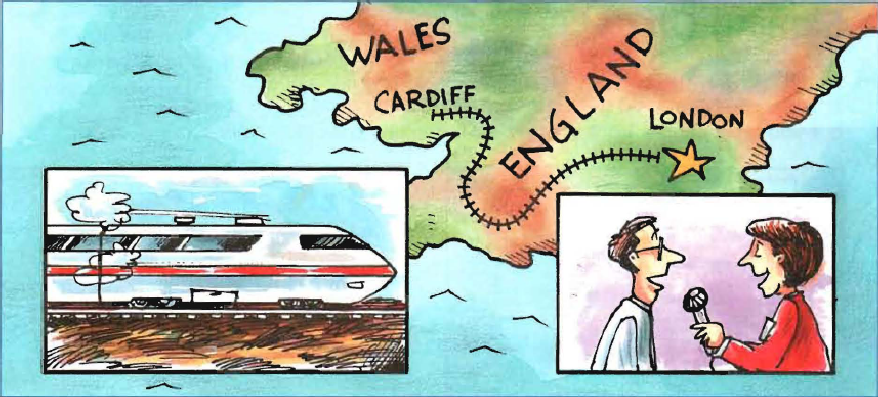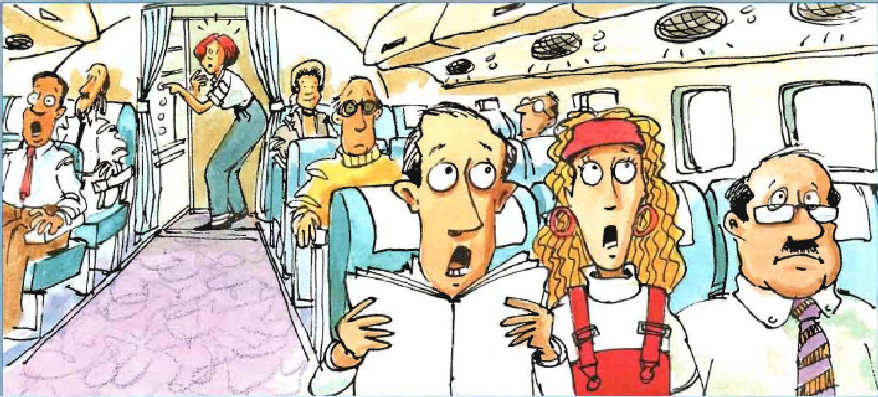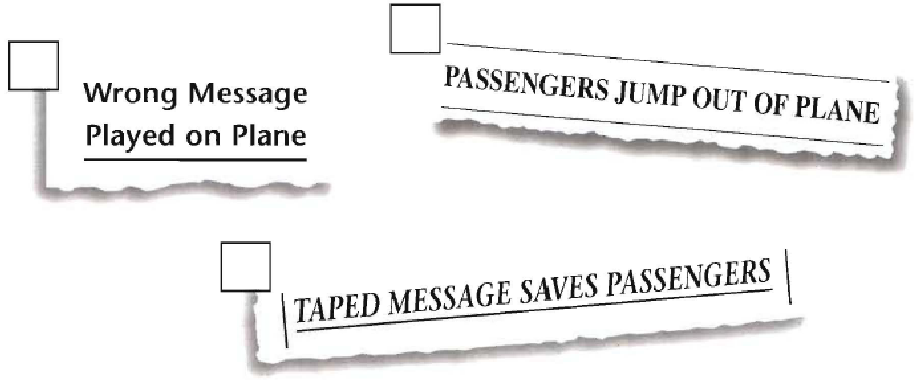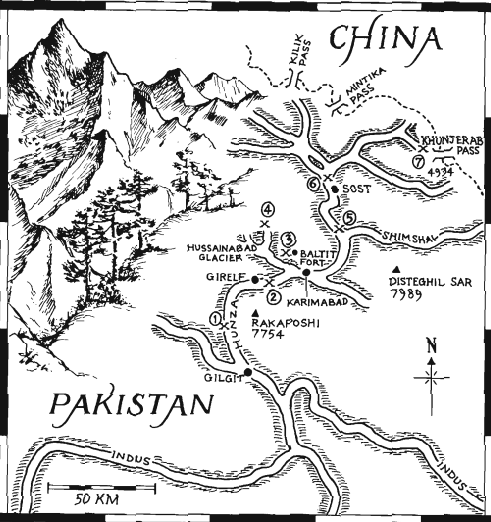
- •Unit 1. Medicine
- •2. How far do you agree with the man in the third dialogue “You’d have much more energy if you took regular exercise”? making an appointment (00:59)
- •1. Listen to the dialogue and fill in the questions. Who is Tina speaking to?
- •2. Use the prompts below to act out similar dialogues.
- •3. Discuss the following questions.
- •2. Listen only to an introduction and complete the notes below.
- •3. Listen again and answer the following questions.
- •Back pain
- •3. Answer the questions using the words and word-combinations given in brackets.
- •Reflexology
- •A long trip
- •3. Listen to the story. Then check the best headline.
- •4. What accommodation possibilities would you be interested in? Why? Discuss you ideas in class. Transport problems (03:25)
- •1. Try to guess the meanings of the word combinations and then discuss your ideas in class.
- •2. While you listen, decide whether the following sentences are true or false.
- •3. Listen again and complete the information while listening.
- •4. Discuss the advantages and possible drawbacks of transport infrastructure of mega cities. What can be done to solve their transport problems?
- •2. Listen to the person talking about ethical shopping. Decide whether the following statements are true or false.
- •3. Listen again and discuss the questions.
- •Charity shops (05:13)
- •1. You are going to listen to the man talking about charity shops in England. Look at the pictures. What things do charity shops sell?
- •2. Listen to the person talking about charity shops and match the following.
- •3. Listen to the person talking about charity shops and complete the sentences.
- •4. Answer the questions using the word and word-combinations given in brackets.
- •3. Answer the questions.
- •3. What words and expressions used in the recording have a meaning similar to “very intelligent students”, “deep learning”?
- •3. Listen again and find the words and expressions that mean the following.
- •3. How do you like the idea of such a university? Do you agree that ‘it’s never late to learn’?
- •4. Speak on what you have learnt from the presentation. Give your own opinion about the Bologna process and the changes it has involved. Going to secondary school (05:43)
- •1. You are going to listen to the man talking about secondary schools in Great Britain. Before listening complete the sentences using the words in the box below.
- •2. Listen and decide whether the statements are true or false.
- •3. Answer the questions.
- •Lifelong learning (02:36)
- •1. You are going to listen to a radio advertisement for university courses. Listen and choose the best answer.
- •2. Listen again and answer the questions.
- •Student money (04:46)
- •1. Before you listen do the vocabulary activity below. Match the words and phrases to the definitions.
- •2. Listen and put the experiences and tips about student money in the order you hear them.
- •3. Discussion.
- •2. Listen to the article and complete the information according to the listening.
- •3. Answer the questions using the words and word-combinations in brackets.
- •What’s a university education worth? (04:23)
- •1. Before you listen do the vocabulary activity below. Match the words and phrases to the definitions.
- •2. Listen and decide whether the statements are true or false.
- •3. Listen again and complete the sentences.
- •4. Discussion.
- •The changing of the guard
- •On the road with the chief beefeater at the tower of london (video 26:25)
- •1. Answer the following questions.
- •Uk parliament tour
- •2. Enumerate the reasons for football violence.
- •2. Listen again and discuss the following questions.
- •Water sports (06:11)
- •1. Use the words in the box to complete the sentences.
- •2. Listen to the article and discuss the following questions.
- •Surfing (04:45)
- •1. Listen to the recording and fill in the missing words in this summary.
- •2. Find the English equivalents for the following words and word combinations:
- •Child athletes
- •The olympic games (05:54)
- •1. Listen to the article “The Olympic Games: then and now” written by Craig Duncan. Answer the questions about the text according to the listening.
- •2. Listen again and complete the sentences according to the listening.
- •3. Answer the questions.
- •The two ronnies
- •What hands do you have? (03:35)
- •1. Match the adjectives with the underlined phrases in the sentences.
- •2. Listen to two friends, Helen and Daniel, talking about the connection between your hands and your personality. Which sentences from above are true for Daniel?
A long trip
(01:35)
1. You are going to hear a story about a trip. Look at the pictures. What do you think happened?

2. Match the words and their definitions.
|
destination |
someone who works for a company |
|
record |
the place you are heading for while travelling |
|
settle down |
the act of travelling from one place to another |
|
employee |
the best or fastest ever done |
|
journey |
stop travelling and live in one place |
3. Listen to the story. Answer the following questions according to the listening.
How old is Masami Kono?
What is Masami Kono?
Where did he start his trip?
How many kilometers did he cycle?
How many continents did he cross?
What was his final destination?
Did he set up a new Japanese bicycle trip record?
How much longer was his trip than the previous Japanese record?
Did he spend all his savings during his trip?
How much money did he save for his trip?
How long did it take him to complete his trip?
Does he want to go on another long trip?
BEST COMMUTER
(01:28)
1. You are going to hear a story about going to work. Look at the pictures. Why do you think the man is being interviewed?

2. Match the words and their definitions.
|
cost of living |
an organized event in which people try to win a prize by being the best, fastest, etc. |
|
commuter |
a holiday, especially when you are travelling away from home for pleasure |
|
competition |
the average amount of money people pay for food, clothing, housing, etc. |
|
vacation |
someone who travels to and from work or school every day |
3. Listen to the story. Answer the following questions according to the listening.
What competition has Barry Haddow just won?
Why did he win the competition?
Was the competition organized by a TV program?
How far does he travel every day?
How long does it take him to get to work?
Does he travel most of the way by taxi?
How does he save time?
Why does he live in Wales?
Why doesn’t he want to live in London?
What prize did Barry Haddow win?
FALSE ALARM
(01:19)
1. You are going to hear a story about something that happened on a plane. Look at the picture. What do you think happened?

2. Match the words and their definitions.
|
false alarm |
something dangerous or serious, such as an accident, which happens fast or unexpectedly |
|
aisle |
a person who is travelling on a vehicle |
|
flight attendant |
a dangerous arrival on the ground of an aircraft or boat |
|
passenger |
someone who looks after passengers on a plane |
|
crash landing |
a warning that something dangerous is going to happen, but it doesn’t |
|
emergency |
a long narrow passage between rows of seats |
3. Listen to the story. Then check the best headline.

4. Before you listen again, read the sentences below. Then listen and number them in the order the events happened.
The message told the passengers they were going to land on water.
The passengers heard a taped message.
A plane took off in Portugal.
A flight attendant then explained that it was a false alarm.
The cabin crew rushed into the aisles.
It told them to get their lifejackets.
The plane started to cross the English Channel.
5. Listen to the story again and answer the following questions.
How long did the passengers prepare for a crash landing?
When did the false alarm happen?
Where was the flight going?
How many passengers were there on the plane?
What was the flight number?
How many message tapes were there?
A JOURNEY TO THE HIMALAYAS
(06:05)
1. Below are four groups of words each describing a class of geographical feature. Circle one word in each group which does not fit with the others and explain why it does not fit.
confluence tributary oasis estuary
glacier landslide subsidence avalanche
valley gorge ravine cliff
ridge pass summit peak
2. You are going to hear someone on the radio describing their journey along the Karakoram Highway in the north-west Pakistan. As you listen follow the route on the map below and at each place the speaker stops off at, note down what is happening and/or what can be seen.

1. ______________________________________________________________.
2. ______________________________________________________________.
3. ______________________________________________________________.
4. ______________________________________________________________.
5. ______________________________________________________________.
6. ______________________________________________________________.
7. ______________________________________________________________.
3. You and a friend have heard this programme (and may already know something about the Himalayas) and are thinking of taking a holiday in this area. Discuss the advantages and possible drawbacks of such a holiday. Below are some points to consider.
accommodation
possible risks/dangers to health
getting there
the language
food/shops
what to take with you
TOURIST ACCOMMODATION
(03:02)
1. You are going to listen to a travel agent explaining accommodation possibilities to a man and woman. Study the list of tourist accommodation possibilities and discuss the meanings of the word-combinations below.
selfcatering accommodation
accommodation with meals provided serviced accommodation
country hotel
farm accommodation
guest house
B&B
country cottage
restored farmhouse
castle
hostel
dormitory
campsite (a caravan / tent)
bunkhouse
camping barn
2. Listen to the conversation and answer the following questions.
1. What tour would the woman prefer?
2. Are they interested in selfcatering accommodation?
3. What does the travel agent think of a selfcatering cottage?
4. Would a dormitory be suitable?
5. Is hiring a caravan a bad idea?
3. Listen to the conversation again and complete the information about accommodation possibilities in Wales while listening.
Wales can offer a variety of accommodation possibilities: ________ accommodation or _______ accommodation away from the crowds.
There’re ____________, which are usually ________ and in extensive grounds.
A cheaper option in a ______ location would be __________ accommodation.
This is similar to a _____ __________ or __________, but on a working farm.
If you want to go selfcatering, there are lots of _______, _____, even ______,
available on a _______ basis.
They’re probably not suitable if you want to__________ __________ Wales.
Many hostels nowadays have __________ __________ as well as _________.
There are plenty of __________ in Wales.
Most campsites allow both __________ and __________ ___________.
In the mountains there are ___________, which are like _________ but simpler.
In the really ____areas there are camping barns. These provide a place to sleep.
You need to take everything with you – sleeping bag, food, even a __________.
You can get you some ________________ to find out where all these places are. And you can get a lot of information from the Welsh ________ Board’s website.
